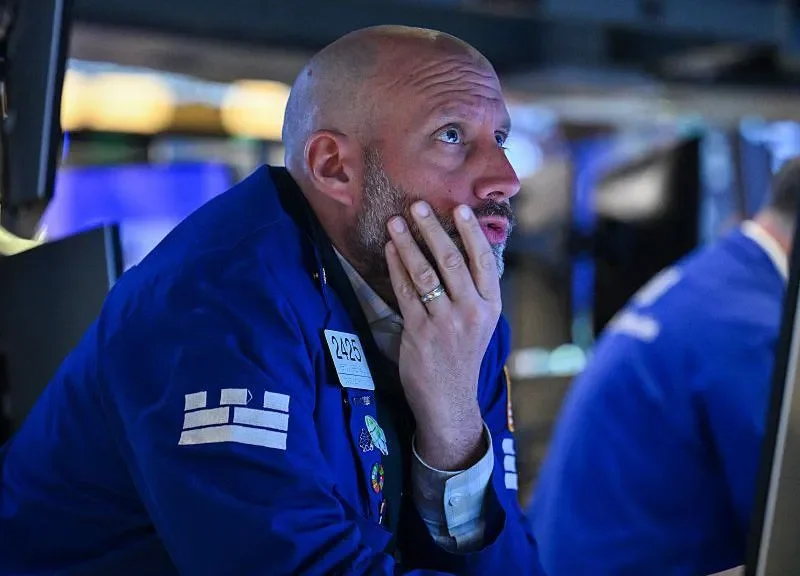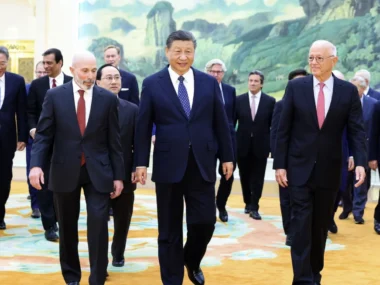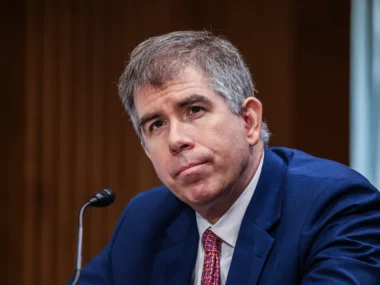US stocks and the dollar dropped once again after President Donald Trump escalated his public criticism of Federal Reserve Chair Jerome Powell, labeling him “a major loser” for failing to cut interest rates.
In a social media post, Trump urged Powell to lower rates “pre-emptively” to support the economy, accusing the Fed chief of reacting too slowly to economic signals.
“There could be a slowdown in the economy unless Mr. Too Late, a major loser, cuts rates NOW,” Trump stated.
Trump’s remarks follow rising concerns about a potential recession, driven in part by his administration’s tariff plans, which have already triggered a stock market downturn. His mounting tension with Powell, whom he appointed during his first term, has only increased market volatility.
On Monday, the S&P 500 dropped by approximately 2.4%, bringing its total decline for the year to about 12%. The Dow Jones Industrial Average also fell 2.4%, down nearly 10% year-to-date, while the Nasdaq declined over 2.5%, with an 18% loss since January.
In Asia-Pacific markets on Tuesday, trading remained muted. Japan’s Nikkei 225 slipped 0.1%, the ASX 200 in Sydney dipped 0.3%, while Hong Kong’s Hang Seng rose 0.3%.
In early European trading, the UK’s FTSE 100 edged down by 0.05%. Germany’s DAX dropped 0.5%, and France’s CAC lost 0.6%.
Despite typically being seen as safe assets during market stress, the US dollar and government bonds have not been immune to recent instability.
The dollar index, which compares the US dollar to a basket of currencies including the euro, fell to its lowest level since 2022 on Monday.
Yields on US Treasuries also climbed on Tuesday, reflecting investors’ demand for higher returns on government debt.
Meanwhile, gold prices surged to a new record, surpassing $3,500 (£2,613) per ounce, as investors sought out safe-haven assets amid ongoing economic uncertainty.
Trump’s criticisms of Powell date back to his first term, when he reportedly even considered removing him from office. Since returning to power, he has continued pressing Powell to lower interest rates.
The latest round of attacks comes after Powell cautioned that Trump’s tariffs could raise prices and slow economic growth.
Last week, Trump publicly called for Powell’s removal, writing on social media, “Powell’s termination cannot come fast enough.”
Dismissing the Fed chair would be highly controversial and likely face legal challenges, as the Federal Reserve has traditionally operated independently of the White House.
Powell previously told reporters he didn’t believe the president had the authority to fire him.
However, one of Trump’s senior economic advisers confirmed on Friday—when US markets were closed—that officials were reviewing the possibility.
“A downturn in the US impacts the entire world.”
Trump’s latest remarks come as global financial leaders meet in Washington for the IMF and World Bank’s spring sessions.
Christopher Meissner, economics professor at UC Davis and former IMF economist, told BBC’s Today programme that political influence over the Federal Reserve was more common before the 1970s.
“But over the last 30 to 40 years, we’ve learned that maintaining central bank independence is crucial for stable finances and keeping inflation in check. Reversing that trend could be risky,” he said.
The IMF is set to release updated economic forecasts soon, having already signaled “notable downgrades” last week.
Commenting on the global impact, Meissner noted: “It used to be said that a U.S. slowdown dragged down the rest of the world. We’ll have to see if that still holds true.”
He added, “With the U.S. expected to face a sharp slowdown soon, that spells trouble for global growth.”











